Exercising our minds isn’t just a cliché; it’s a mantra we should all live by if we want to keep fresh neurons—thousands of which are generated each day—alive. Recent research with rats shows that learning enhances the survival of new neurons in the adult brain, specifically in the hippocampus. Moreover, the more challenging the problem, the more cells that survive.
That research builds on findings from work done in the 1990s by Elizabeth Gould, which showed that the mature mammalian brain was able to grow new neurons, a process called neurogenesis. Scientists had long believed that only young, developing minds were able to perform that critical function.
While exercising the brain through learning can keep neurons alive, the new cells don’t survive indefinitely. In fact, most disappear after just a few weeks. Based on their work with rats, a team led by Dr. Tracey J. Shors, a professor in the Department of Psychology and Center for Collaborative Neuroscience at Rutgers University, believe that the cells are made “just in case.”
“If the animals are cognitively challenged, the cells will linger. If not, they will fade away. Gould, who is now at Princeton University, and I made that discovery in 1999, when we performed a series of experiments looking at the effect of learning on the survival of newborn neurons in the hippocampus of rat brains,” writes Dr. Shors in the March 2009 issue of Scientific American.
[Are you looking for health, muscle and the amazing anti-aging benefits of resistance training? Get the new e-book by Steve and Becky Holman, Old School, New Body. Read the Iron Man magazine review here.]
The Shors team used a learning task called trace eyeblink conditioning, in which a rat hears a tone and a half second later receives a puff on its eyelid, causing it to blink. After several hundred trials, the animal usually makes a mental connection and blinks before receiving the stimulation. That provides a good way to measure “anticipatory learning,” which is the ability to predict the future based upon the past, according to Dr. Shors.
The scientists conducted additional studies to determine which types of learning work. They found that tasks that required the most mental effort to master rescued the greatest number of new neurons from death.
—Dr. Bob Goldman
www.WorldHealth.net
Editor’s note: For the latest information and research on health and aging, subscribe to the American Academy of Anti-Aging Medicine e-zine free at WorldHealth.net.
Dr. Robert M. Goldman MD, PhD, DO, FAASP has spearheaded the development of numerous international medical organizations and corporations. Dr. Goldman has served as a Senior Fellow at the Lincoln Filene Center, Tufts University; as an Affiliate at the Philosophy of Education Research Center, Graduate School of Education, Harvard University, He is Clinical Consultant, Department of Obstetrics and Gynecology, Korea Medical University; and Professor, Department of Internal Medicine at the University of Central America Health Sciences, Department of Internal Medicine. Dr. Goldman holds the positions of Visiting Professor, Udayana University School of Medicine, Indonesia; Visiting Professor, Huazhong University of Science & Technology Tong Ji Medical School, China; Visiting Professor, The Wuhan Institute of Science & Technology, China; Visiting Professor at Hainan Medical College, China; and Visiting Professor, School of Anti-Aging, Aesthetics and Regenerative Medicine, UCSI University, Malaysia. Dr. Goldman is a Fellow of the American Academy of Sports Physicians and a Board Diplomat in Sports Medicine and Board Certified in Anti-Aging Medicine. Dr. Goldman is a Fellow of the American Academy of Sports Physicians and a Board Diplomat in Sports Medicine and Board Certified in Anti-Aging Medicine. He has overseen cooperative research agreement development programs in conjunction with such prominent institutions as the American National Red Cross, the US National Aeronautics and Space Administration (NASA), the Department of Defense, and the FDA’s Center for Devices & Radiological Health.
Dr Goldman was awarded the 2012 LifeTime Achievement Award in Medicine &Science. Dr. Goldman is the recipient of the ‘Gold Medal for Science, the Grand Prize for Medicine, the Humanitarian Award, and the Business Development Award. He received honors from Minister of Sports and government Health officials of numerous nations. In 2001, Excellency Juan Antonio Samaranch awarded Dr. Goldman the International Olympic Committee Tribute Diploma for contributions to the development of sport & Olympism.
In addition, Dr. Goldman is a black belt in karate, Chinese weapons expert, and world champion athlete with over 20 world strength records, he has been listed in the Guinness Book of World Records. Some of his past performance records include 13,500 consecutive situps and 321 consecutive handstand pushups. Dr. Goldman was an All-College athlete in four sports, a three time winner of the John F. Kennedy (JFK) Physical Fitness Award, was voted Athlete of the Year, was the recipient of the Champions Award, and was inducted into the World Hall of Fame of Physical Fitness. Dr. Goldman was awarded the Healthy American Fitness Leader Award from the President’s Council on Physical Fitness & Sports and U.S. Chamber of Commerce. Dr. Goldman is Chairman of the International Medical Commission overseeing sports medicine committees in over 184 nations. He has served as a Special Advisor to the President’s Council on Physical Fitness & Sports. He is founder and international President Emeritis of the National Academy of Sports Medicine and the cofounder and Chairman of the American Academy of Anti-Aging Medicine (A4M). Dr. Goldman visits an average of 20 countries annually to promote brain research and sports medicine programs.












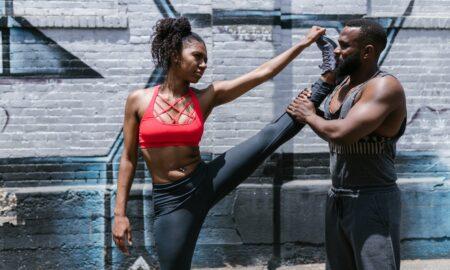
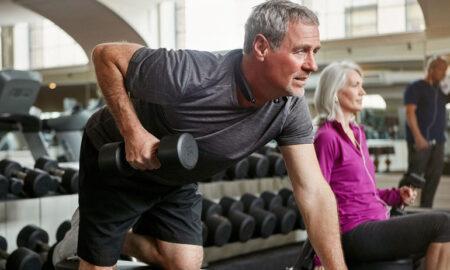


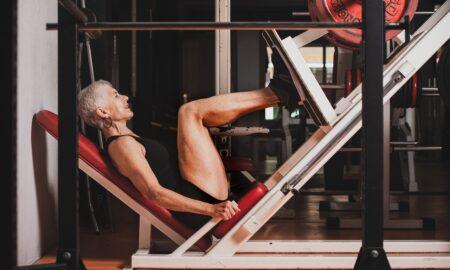
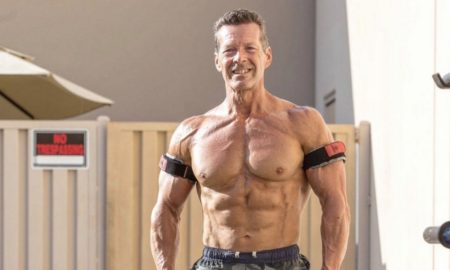
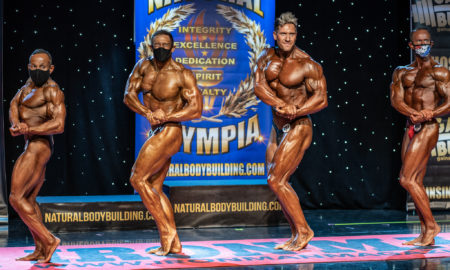
You must be logged in to post a comment Login